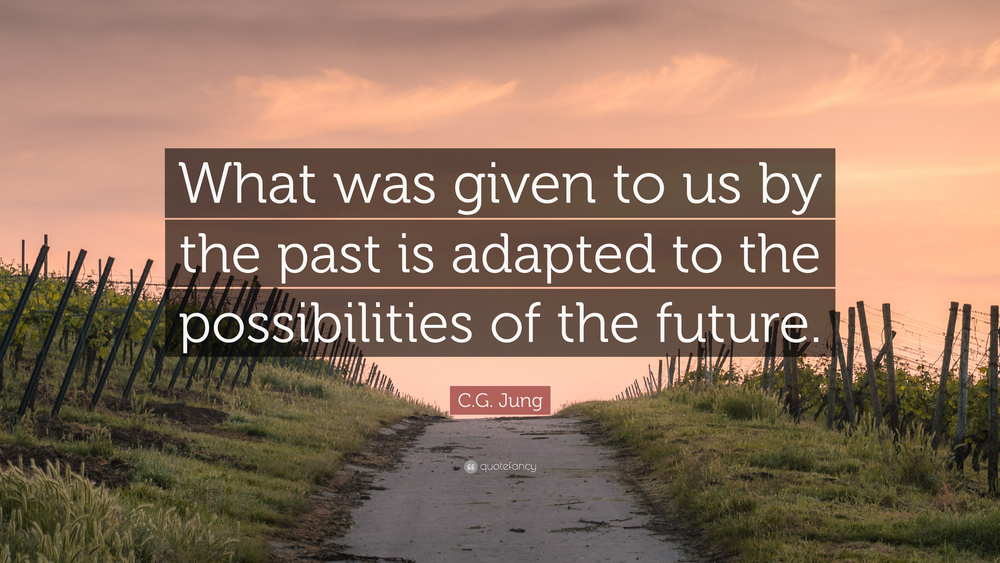
We can learn a lot from the work of Carl Jung about how to let go of the past. In fact, my journey into Jung’s collected works began with a question that was directly related to letting go of the past: How can I ever move on from, and ultimately transcend, the torment of my past? It was something which continued to haunt me, no matter how much I tried to let it go.
Table of Contents - Jump To Section
The Confrontation with my Past
 At the time of that fateful question, there was an existential conflict in me and I knew that that conflict had to be resolved, lest I fall victim to my own hopelessness, bitterness, and resentment. On the one hand, was my firm understanding that everything in my life, no matter how tragic, has meaning and purpose for my soul. And on the other hand, I could not let go of everything I had experienced at the hands of not only inept, but also cruel parenting and the subsequent debilitating effects those experiences seemed to have on my life. Every time I thought I had let go of the past, something could trigger it and everything would come surging back up, leaving me reeling once again.
At the time of that fateful question, there was an existential conflict in me and I knew that that conflict had to be resolved, lest I fall victim to my own hopelessness, bitterness, and resentment. On the one hand, was my firm understanding that everything in my life, no matter how tragic, has meaning and purpose for my soul. And on the other hand, I could not let go of everything I had experienced at the hands of not only inept, but also cruel parenting and the subsequent debilitating effects those experiences seemed to have on my life. Every time I thought I had let go of the past, something could trigger it and everything would come surging back up, leaving me reeling once again.
In my early forties (I am late fifties now), I finally hit the proverbial wall and it was time to deal with the past in a different way, because clearly, what I had been doing was not working. Again, I thought I had long since processed everything, but all of it resurfaced with a vengeance and I was completely unarmed for the intensity of the onslaught. I was having unbelievable night terrors and chronic anxiety and I was again plagued with a very potent, but non-descript fear about life. Now, I understand that all of the inner work I had been doing was opening the doors to the depths of the Unconscious and in 2007, those doors blew wide open and the energy of the Unconscious began to overpower me. Honestly, I thought I was going lose my mind in the force of that darkness.
How to let go of the past: a yogic reorientation with a Jungian twist
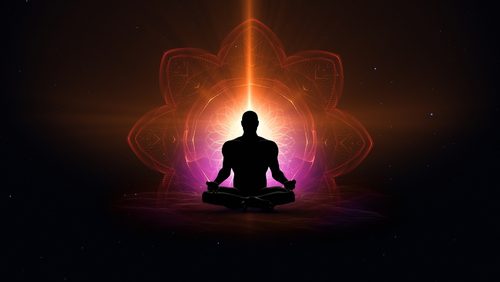 I am not the only one who has this inner conflict, though not everyone is conscious of it as such. Consciously, we want to let go of the past and move on, but something else in us cannot. That inability to move on is the essence of an autonomous complex.
I am not the only one who has this inner conflict, though not everyone is conscious of it as such. Consciously, we want to let go of the past and move on, but something else in us cannot. That inability to move on is the essence of an autonomous complex.
One of the biggest challenges for clients in my Jungian psychoanalytical practice is letting go of a painful past. I see so many people stuck on rewinding and replaying the painful events of their lives. We get a few steps forward in the analytic process and then something pulls them back again. The past often has spectacular power over us, especially if we do not learn to properly relate to it.
The past is a potent force; and, it is a force with which we must reconcile again and again, otherwise we unconsciously cling to it. The Yoga Sutras call this powerful tendency of ours, clinging to life by its own potency. In Jungian terms, we call that kind of clinging a fixation. No matter what you call it, clinging to anything is an obstacle to moving forward in life. And we know from psychodynamic theory, if one cannot move forward, a regression sets in. Once that happens, our libido (psychic energy) turns back on itself, reigniting all of our old memories and patterns.
This relationship is indeed the infantile channel along which the libido flows back when it encounters any obstacles in later years, thus reactivating the long-forgotten psychic contents of childhood. It is ever so in life when we draw back before too great an obstacle, say the threat of some severe disappointment or the risk of some too far-reaching decision. The energy stored up for the solution of the task flows back and the old river-beds, the obsolete systems of the past, are filled up again. A man disillusioned in love falls back, as a substitute, upon some sentimental friendship or false religiosity; if he is a neurotic he regresses still further back to the childhood relationships he has never quite forsaken, and to which even the normal person is fettered by more than one chain—the relationship to father and mother.
C. G. Jung. The Significance of the Father in the Destiny of an Individual, CW Volume 4, par 694
Jung on the Power of our Past
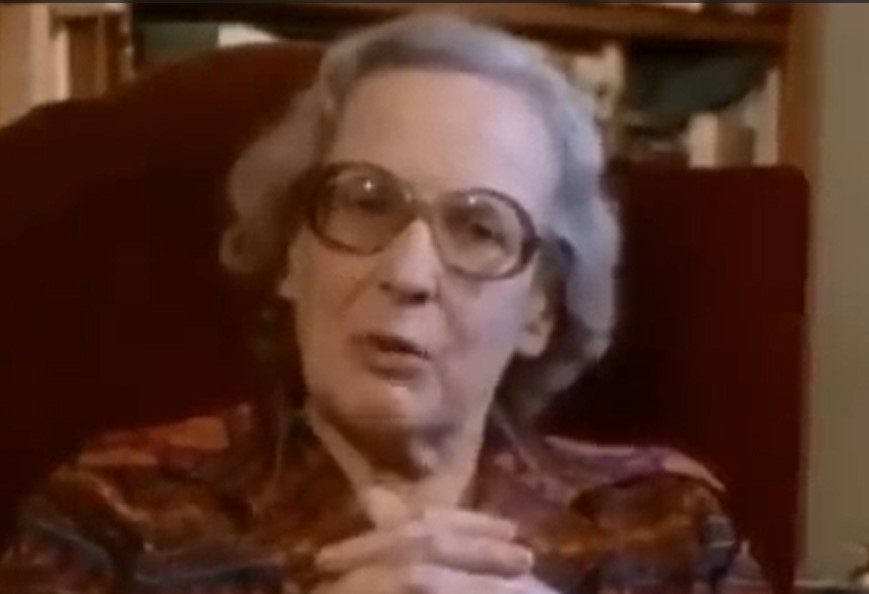 I used to struggle with myself because of my inability to let go of the past. I though that somehow be offtrack or doing something wrong. It was always so easy to get caught up in that sticky melodrama!
I used to struggle with myself because of my inability to let go of the past. I though that somehow be offtrack or doing something wrong. It was always so easy to get caught up in that sticky melodrama!
I often wondered what happened to all of my psychological realization. Then I heard Marie-Louise von Franz speak about a similar problem she had. Every time she went to visit her family she fell into her old patterns and it took a while recover from those visits. With a beautiful sense of humor way she remarked, “There are parts of my personality who know absolutely nothing about Jungian psychology.” What a relief that was to hear.
Wondering what the hell was wrong with her, she asked Jung about this problem,
If one does not constantly walk forward, the past sucks one back. The past is like an enormous sucking wind that sucks one back all the time. If you don’t go forward you regress. You have constantly to carry the torch of the new light forward so to speak, historically and also in your own life. As soon as you begin to look backward sadly, or even scornfully, it has you again. The past is a tremendous power.
Having spent decades under the dark spell of my own personal history, I know from experience that letting go of the past is not easy.
Your first step in letting go of the past is to change the way you are responding to your past.
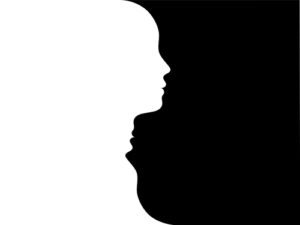 For the moment, this means you have to surrender any dualistic assumptions from the equation: that bitter sense of injustice, immorality, insensitivity, or anything else that moralistically describes what happened. Now, that is a bitter pill to swallow, especially given the horrendous nature of what humans do to each other.
For the moment, this means you have to surrender any dualistic assumptions from the equation: that bitter sense of injustice, immorality, insensitivity, or anything else that moralistically describes what happened. Now, that is a bitter pill to swallow, especially given the horrendous nature of what humans do to each other.
Jungian Perspective on how to let go of the past
I’m not going to talk to you about CBT or other behavioral modification techniques here. Those are very helpful for alleviating the symptoms of anxiety, depression, or rage that often come with a difficult past. I’ll be touching on that kind of stuff for sure – just not for now. Here I want to offer you a Jungian perspective on working with and transcending your painful past.
The wise man … will ask himself: Who am I that all this should happen to me? To find the answer to this fateful question he will look into his own heart. Carl Jung
The Yoga of Carl Jung’s Analytical Psychology
Before I studied Carl Jung’s psychology, I had contemplated various iterations of that question of his. I knew that my life experiences had meaning and that they comprised what I used to call my Process. Furthermore, I also knew that something greater than my ego somehow steered this Process.
But what was the mysterious Process in which I had so much faith? The problem was that I had no point of reference other than my own. And while I knew it to be Truth, self-doubt could still creep in. If I knew it to be Truth, then why could I still fall into states of hopelessness or despair? This puzzled me.
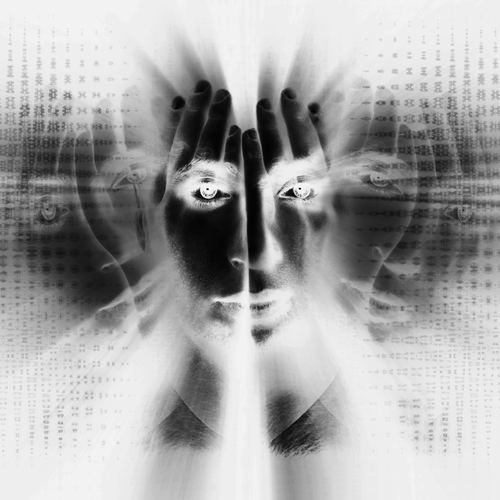
Again, there was a war within me – a seemingly unresolvable conflict between these two perspectives: my past happened for a greater purpose versus my past was a brutal injustice.
But when I saw that Jung had also said that our past had meaning, I felt somehow validated. Here was a brilliant man who wrote enough volumes on psychology for 10 lifetimes saying the same thing I had been saying. He called this process the individuation process.
Back to learning to how to let go of the past
I want to further explore Jung’s question in that quote: Who am I that this should happen to me?
This question is not the same as the self-pitying, why me-syndrome that many people fall into. Don’t get me wrong here, some of us have to go through that stage before we can let go of the past. So many people have been injured to the point of feeling worthless and they need some honest sympathy.
But the problem is that too many people get stuck there.
Why can’t I let go of the past?
Another problem is that many people hold on to their past like a crutch. Sometimes knowingly, and sometimes unknowingly, people use their terrible past as an excuse for their current state of hopelessness or helplessness in life.
This is no course for future happiness, much less success. Clinging to the past in that way only traps you in the mindstate – in the expectation – that it should have been different for you.
… no matter how much parents and grandparents have sinned against the child, the man who is really adult will accept these sins as his own condition which has to be reckoned with. Only a fool is interested in other people’s guilt, since he cannot alter it. The wise man learns only from his own guilt. He will ask himself: Who am I that all this should happen to me? To find the answer to this fateful question he will look into his own heart.C.G. Jung
Letting go of blaming anyone for your past
As Jung said, it’s much easier to blame someone for your past, and thus your current state, than to take responsibility for how you respond to it. I think too many people, whether consciously or unconsciously, believe that taking responsibility for something painful means that whatever happened was okay, or worse, that their painful past was somehow their fault.
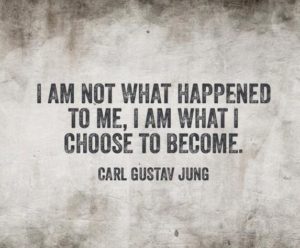
Letting go of blame isn’t about forgetting, or even forgiving (though the latter has its psychological benefits). I think that letting go of blaming someone for the past is more about letting go of wishing your past had been, or should have been, something else. I go so far as to say, letting go wishing your past had been, or should have been something else is the essence of forgiveness.
How to let go of the past: the Dualistic Perception Deception
I gather from experience that I am about to ruffle some feathers here, but stay with me. Thinking that life should be anything other than “what it is” is what I call the Mother of all Deceptions. Especially when we get trapped in this concept of Should. Let me tell you, I rested in the arms of that negative mother dragon for a very long time and it held me back from living. If I can help anyone else break through that deceptive trap, I will.
Letting go of the past is understanding that everything is as it should be
We are deceived into believing that the universe is not as it should be: believing things like our childhoods weren’t what they should have been; our relationships aren’t what they should be; or that the world is not what it should be.
Hence, we unconsciously resist life and become trapped in a dualistic measure, bound by the perceived fortunes and misfortunes of our limited ego. This kind of egoism causes us to suffer crisis —a confrontation with what is — manifested in our lives as the likes of confusion, depression, anxiety, and rage. We kill people over it. Wars are started because of it. All of it is nonsense. There is no such thing as should outside of human consciousness – and even then our ideas of should are profoundly different.
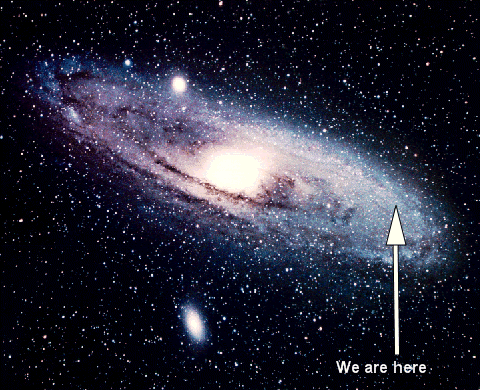
My biggest realization about letting go of the past
If I have learned one thing from my deepest moments of darkness and despair, it’s this:
The universe is unfolding exactly as it “should be.” The universe simply is. We are not here to fix it. We have only to consciously align ourselves with it “as it is.” To believe anything else is to be trapped by something that you simply cannot control.
If we are to transcend that kind of limited thinking and connect to something deeper in ourselves, we have to stop believing and unconsciously engaging in ego-responses such as “this is right” and “this is wrong.” Instead, we must look at what is happening in terms of how a particular life experience transforms us. If we can see that everything that happens is both, part of our individual path and part of some kind of cosmic path, we can accept it and surrender to it.
Now, I say all of this, not as someone who can detach from the horrors of the world around me. I habitually lose sleep over events that have nothing to do with my so-called personal life. The horrors of war, terrorism, child abuse, sex trafficking, homelessness, and animal abuse haunt me on a daily basis, so I have to find some way to reconcile that all of it happens. For that I turn to Rumi:
Out beyond ideas of wrongdoing and rightdoing,
there is a field. I’ll meet you there.
When the soul lies down in that grass,
the world is too full to talk about.
Ideas, language, even the phrase “each other”
doesn’t make any sense.
The breeze at dawn has secrets to tell you.
Don’t go back to sleep.
You must ask for what you really want.
Don’t go back to sleep.
People are going back and forth across the doorsill
where the two worlds touch.
The door is round and open.
Don’t go back to sleep
… and after all my talk about letting go of the past – and now – back to my past
 I want to return to my own past as a yoga teacher for a moment because the yogic way of life is very close to Jungian analytical psychology.
I want to return to my own past as a yoga teacher for a moment because the yogic way of life is very close to Jungian analytical psychology.
In the yogic way of thinking there are two concepts that I have tried to live by: acceptance and surrender. The Sanskrit word for acceptance is santosha. Santosha just means acceptance of the world “as it is”. This is not to suggest submission or resignation to anything external or “inevitable.” Nor is it to suggest that we have no power to change what can be, but rather to say that we be consciously present in the now, whether that now is a traffic jam, doing the dishes, or a life-changing tragedy.
The word for surrender is ishvarapranidhana. What we are surrendering is our self-limited perspectives. Surrender, however, is not about permanent dissolution of our self as an individual. All that we are surrendering are limited perceptions and egoistic determinations. Surrender is about expanding and deepening our self-concept through our conscious participation in life as it unfolds.
But to what are we surrendering? We are surrendering to life in whatever way it’s unfolding in the moment. That’s all we really have to work with. It’s so simple, yet so difficult. That’s the existential paradox of living life beyond dualistic expectations.
This is not to say that any of the work you do is going to be easy. It’s certainly not easy. We still have to suffer through our sometimes very painful human experience.
If you can translate these concepts into letting go of the past and working with it in a transformative way, then you have the foundation and framework to survive anything life throws at you.
Isn’t that what we really want? To live courageously and fully no matter what happens?
This kind of expanded vision frees us from the limited ego and its expectations and empowers us to transform ourselves through every experience. Facing life consciously under any circumstance: that is real freedom. To be liberated from our suffering, we have to be willing to give up everything – our past, our present, and our future – to our individuation process.
Anything we cannot psychologically surrender traps us. Whatever we refuse to surrender binds us to it.
Once you can let go of that kind of limited thinking, then you’re ready for what I call, next level integration: changing your past.
How letting go of the past changes the past
People always say, “You can’t go back and change the past,” but this is not necessarily true. In a sense, you can change the past. And when you figure this out, everything about your present – and thus your future – changes also.
What I’ve been getting at this whole time is the absolute power of our perception. I have a whole story about how this revelation came to me. However, I fear that it would take this article beyond all endurance.

Our perception is the lens through which we see the world. Our perception is the only place in our lives where we have absolute freedom. This freedom does not refer to anything other than the act of perceiving itself. Freedom is not about being able to have or be whatever we want. It is about trusting what we have and what we are – no matter what that is. How we live depends on how aware we are of this freedom. Our real freedom is the freedom of our awareness to perceive “what is” in our lives any way we want.
 This is what Jung meant when he said that we must ask ourselves, “Who am I that all this should happen to me?”
This is what Jung meant when he said that we must ask ourselves, “Who am I that all this should happen to me?”
What do you choose to see?
Your past does not define you. How you respond to your past defines you. “What was given to us by the past is adapted to the possibilities and demands of the future.” Whoever made up that pretty quote and attributed it to Jung left that last bit out. To be honest, Jung never said that exactly, but he certainly implied it. What he meant was too many people use their past to do nothing with their lives. Life demands that we participate and some people just say no, I can’t. I’m too injured.
We call that mindset a neurotic mechanism and if you want to change that mechanism, you must interrupt and transform it. If not, you’re going to fall into yourself and wake up one day too old or too broken to do anything about it. Don’t let that happen.
How to let go of your past: Conclusion
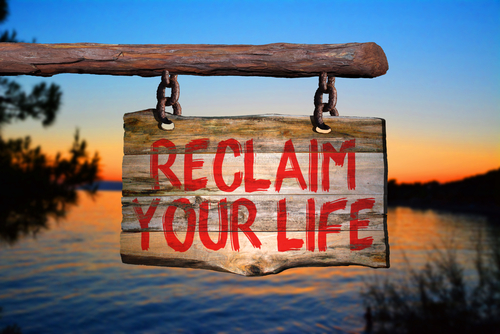 If you really want to change your past, then you have to go back and retrieve that rejected, dismembered, or left-behind piece of yourself – whatever it is. In order to become whole now, you have to give yourself what you were missing then. Some people call that inner child work or something like that, but that just sounds too cliche. The work is so much more than that.
If you really want to change your past, then you have to go back and retrieve that rejected, dismembered, or left-behind piece of yourself – whatever it is. In order to become whole now, you have to give yourself what you were missing then. Some people call that inner child work or something like that, but that just sounds too cliche. The work is so much more than that.
Letting go of the past and archetypal healing
You have to reconnect with that lost part of yourself, hold on to it, bring it into the now, and get it up to speed, so to speak. For many people, this is the initial phase of Jungian Analysis. Through dream interpretation, we can not only find those lost pieces of ourselves, but also discover the inner resources which will revitalize them. Those inner resources are the archetypes and they work like magic:
These cause the who? where? how? why? to emerge clearly and in this wise bring knowledge of the immediate situation as well as of the goal. The resultant enlightenment and untying of the fatal tangle often has something positively magical about it—an experience not unknown to the psychotherapist.
Jung, C. G., Archetypes and the Collective Unconscious, Collected Works Volume 9i, ¶406.
Final thoughts on how to let go of the past
In a sense, actively working with the past means that you have to go back and relive it in a process called abreaction, but abreaction is not obsessive and destructive, which is the way that many people deal with a traumatic past.
Try to see what you learned from your past, what you gained from any traumatic experiences, and how those experiences made you who you are today. Embrace the person you have become, no matter who or what you have become. There is a way to let your past empower you, but only you can realize that. No one else can tell you what it is. Listen to your deeper wisdom. Trust yourself.

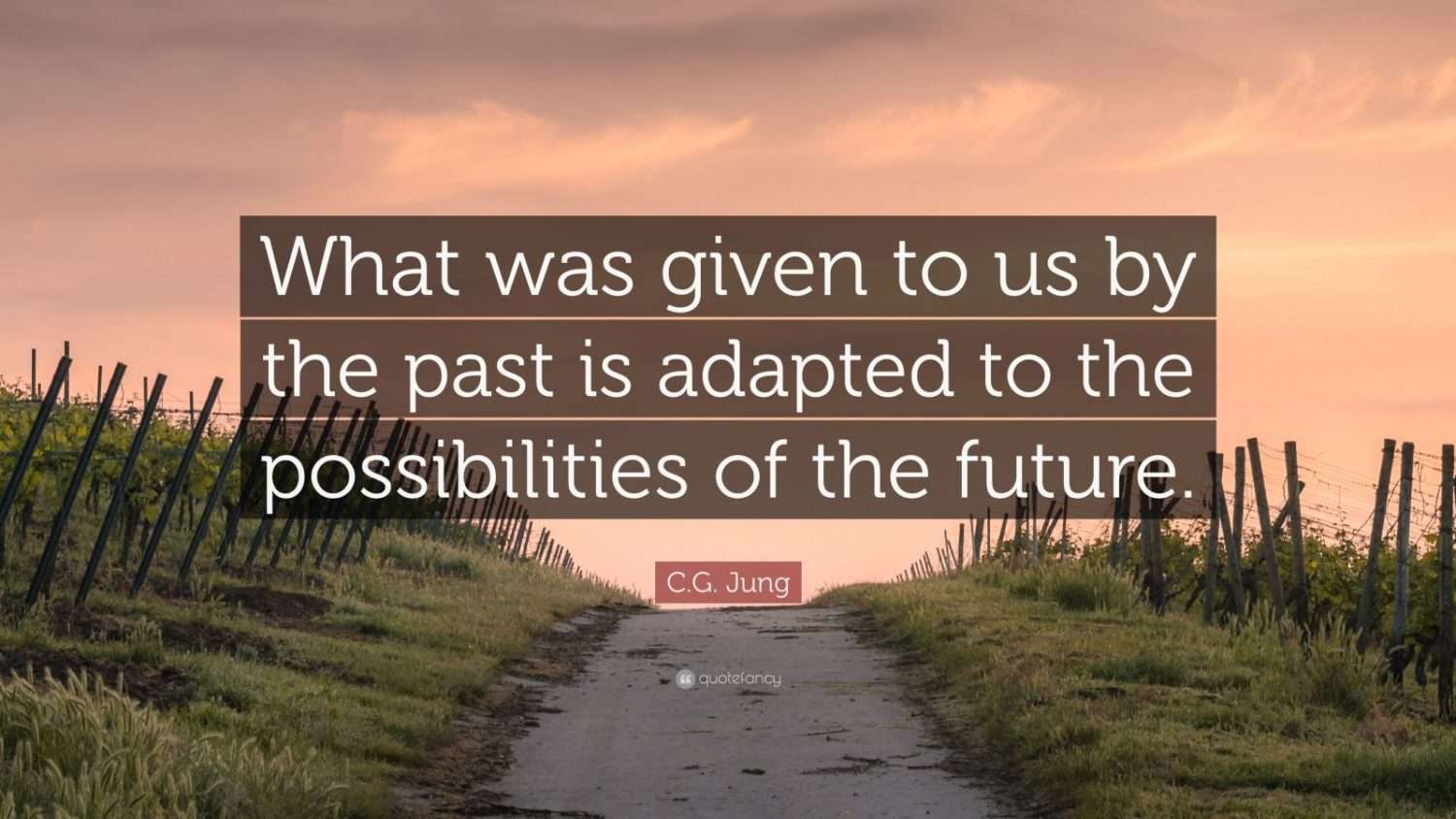
Thank you for sharing your experience and your thoughts on Carl Jung!
thanks for reading and taking the time to comment